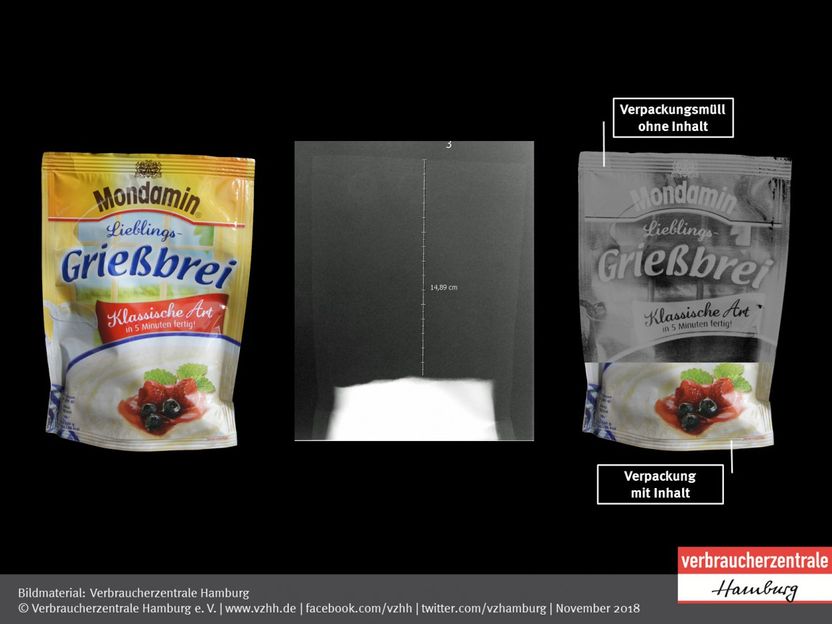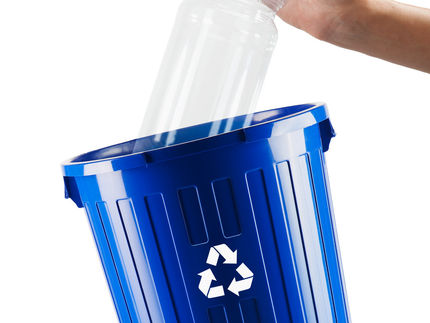Garbage flood in the supermarket: More packaging than content
X-ray images from the consumer centre reveal air packs
Advertisement
In spite of acute problems with plastics in the environment, the manufacturers of convenience foods and drugstore articles still produce far too much unnecessary packaging waste, according to the Hamburg consumer advice centre. In a random examination of 14 products about which consumers had complained, the Hamburg consumer protectors determined an average height of 59 per cent for the packaging portion without contents with the help of X-rays. The average height of the actually filled part of the packaging was only 41 percent.

Verbraucherzentrale Hamburg e. V.
1. The "Mondamin Lieblingsgrießbrei Klassische Art" from Unilever came first in the study. With a bag height of 18 centimeters, almost 15 centimeters of the package are without contents and thus 83 percent.
2. Riso Scotti's "Risotto Milanese" comes in second place. The 81 percent empty stand-up pouch pretends to contain significantly more contents.
3. "Finish Powerball All In 1 Citrus Tabs" by Reckitt Benckiser. 27 dishwasher tabs are lost in oversized plastic packaging; the calculated air content is 74 percent.
"Everyone talks about consumers consuming more consciously and avoiding garbage, but nothing has changed on supermarket shelves for years," says Armin Valet of Verbraucherzentrale Hamburg. "There still stand many products, whose contents lose themselves in an excessively large packing. Much packing material could be simply saved, if the packing were full filled. The manufacturer Procter & Gamble for example could do without 20 tons plastic according to the calculations Valets, if it would bring the same quantity of its liquid Lenor full detergent white water lily not - as at present - in 1,000,000 bottles with lower filling level, but in 800,000 full plastic bottles on the market.
Legally speaking, air packs can hardly be prosecuted. Missing specifications in the calibration and packaging law give manufacturers a lot of freedom in the design of their products. Although a new packaging law will come into force in Germany on 1 January 2019, it will not help to significantly reduce packaging waste. "There is no end in sight to the waste of resources," says Valet. The consumer protector demands that, as a matter of principle, every package must be filled to the edge or to the seam and that a maximum free space of 30 percent is only permitted if it cannot be technically implemented in any other way.
The selection of the 14 air packs examined was based on complaints from consumers who felt deceived by the actual filling quantity of an oversized pack. Every year, the consumer advice centre in Hamburg receives almost 1,000 reports from all over Germany about insufficient quantities of finished foods, drugstore articles or other products for daily consumption. For the third time in four years, the consumer protection experts had selected air packs X-rayed. Retailers, too, had only recently asked the consumer advice centre about their efforts to avoid waste and had received only little feedback.
































































